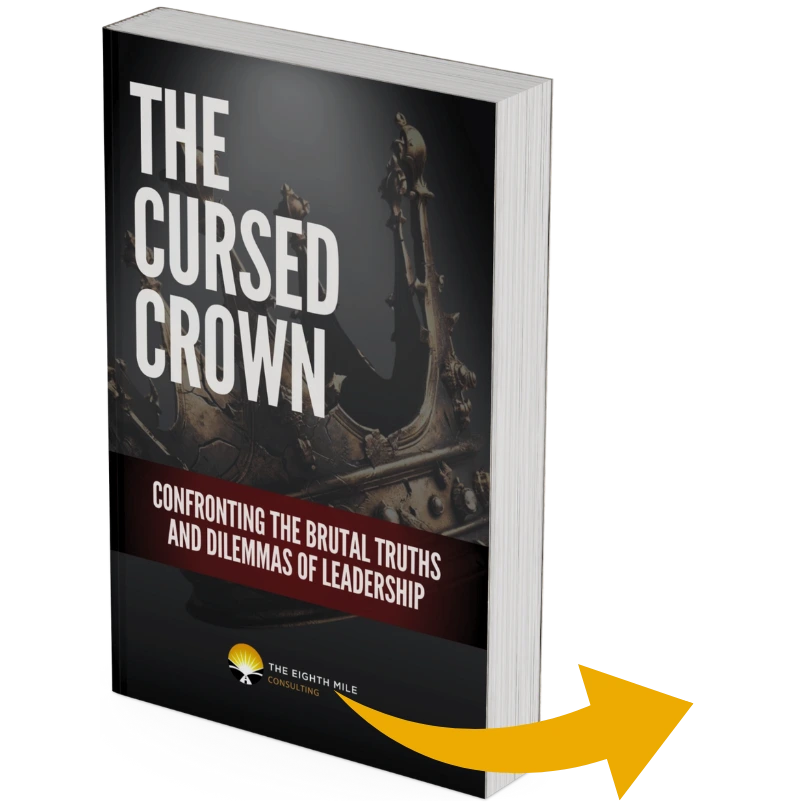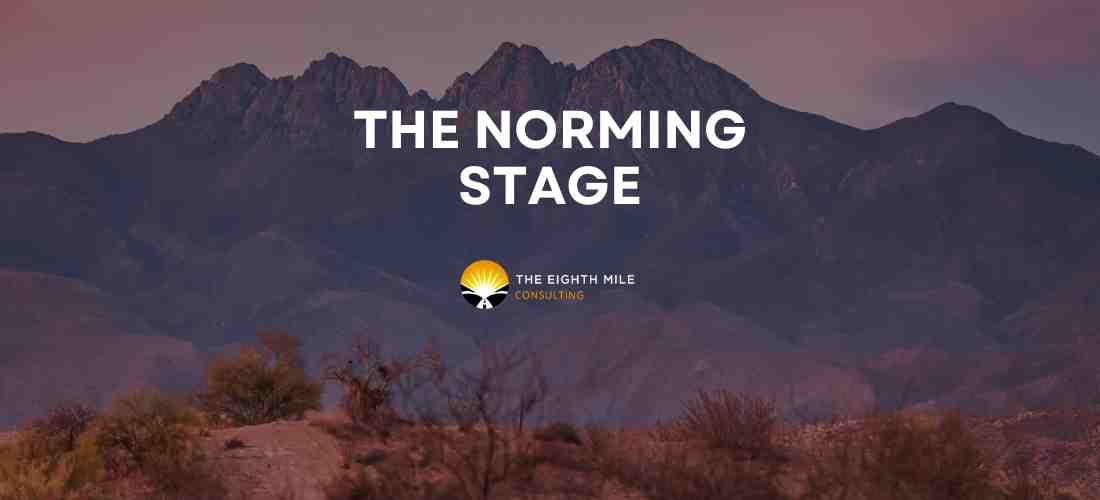
FREE DOWNLOAD
Hard-learned leadership lessons from both the military and the corporate world
Winston Churchill: Leading Under Pressure
When Winston Churchill took the reins as the United Kingdom’s Prime Minister in May 1940, he inherited a crisis.
Europe was collapsing. Hitler’s bombardment had torn through Poland, Denmark, Norway, and was advancing on France with terrifying speed. The Nazi regime was at Britain’s doorstep. Italy was flirting with fascism. Stalin's Soviet Union had aligned with Germany in a pact of convenience. The United States remained an ocean and an ideology away from intervention. The international order had fractured, and the structures that once held the world in place were falling like dominoes. Churchill walked into a house already engulfed in flames, and rather than run from it, he lit his own torch and walked deeper in.
The Storm Before the Storm
The enemy outside was visible. The enemy within was quieter, harder to name, but just as corrosive. British morale was threadbare. Memories of the First World War's devastation were still raw. Families had already buried too many sons. The economy limped. The government wavered. A deep undercurrent of defeatism ran through Parliament and the public alike. Some believed peace with Hitler might be the lesser evil. Some just didn’t believe Britain had the strength left to resist. Leadership at that moment wasn’t just about strategy. Churchill’s task was not only to repel an invading force but to exhume the national will to fight.
Churchill was not the first choice. Nor the second. In fact, many saw him as a political relic, a warmonger with a trail of failures. Gallipoli. The Gold Standard. His views on empire and India. He had crossed too many aisles, burned too many bridges. Neville Chamberlain had lost public confidence, but few wanted Churchill in his place. It was only when the threat became undeniable that Britain reached for someone bold enough to speak uncomfortable truths. He was chosen because he was willing to fight. Sometimes, the leader you need doesn’t arrive wrapped in popularity.
The Power of Words in a World Gone Mad
We Shall Fight on the Beaches: Weaponising Rhetoric as a Tool of War
“We shall fight on the beaches” was more than a morale booster. In an age before the 24-hour news cycle, a few carefully chosen words could change the pulse of a nation. Churchill understood this intimately. He didn’t soften the blow of war, he described it in brutal, vivid terms. His public speaking forged collective identity, even as bombs fell. He knew people didn’t need false hope, they needed to be reminded of their strength.
Turning Fear into Fire: How Churchill Framed Defeat as Fuel
Churchill didn’t sugar-coat the threat. Instead, he held it up to the light and dared the public to look it in the eye. Fear, in his hands, became kindling, not paralysis. When France fell, he didn’t hide the grief. He used it. “Let us therefore brace ourselves to our duties…” he said, calling on citizens not to mourn, but to rally. Turning dread into determination.
Britain was not a harmonious society in 1940. Class divides were stark. Empire policies bred resentment. But Churchill had an uncanny ability to speak in terms that transcended these divisions. He didn’t promise victory, he promised struggle, and in doing so, created common cause. His words stitched together the industrial worker in Manchester, the farmer in Kent, the nurse in London. He framed the war not as a government’s burden, but as everyone’s fight. Unity didn’t come from consensus. It came from shared resistance.
Decisions in the Dark: Strategy Without Certainty
For almost two years, Britain fought Hitler alone. The United States watched from the sidelines, hesitant to enter another European war. The Soviet Union was still aligned with Germany. Churchill led without guarantees, without allies he could rely on, and with the terrifying possibility that Britain might be next to fall. In that isolation, he didn’t flinch. He famously said, “If the British Empire and its Commonwealth last for a thousand years, men will still say: This was their finest hour.” He understood that real leadership doesn’t wait for permission. It acts when no one else will.
Balancing Ruthlessness and Resolve: Sacrifices No One Wants to Talk About
Churchill’s decisions were not always noble. The myth of him as a flawless hero erases the ugly parts of leadership. He allowed the bombing of Coventry to proceed, rather than alert Germany that the Enigma code had been cracked. He supported the firebombing of Dresden. He made trade-offs that sacrificed lives in the short term to win the long game. These weren’t easy calls, they were morally complex, agonising, and controversial. But they were decisions made under a weight most of us will never understand. Leadership, when tested by war, is never clean.
Even as he battled the Nazis, Churchill faced resistance within his own government. Allies turned on him. Critics accused him of overreach. He was navigating not just tanks and bombers, but egos and agendas. He built a coalition, not out of friendship, but necessity. Leadership in war demands more than vision, it demands manoeuvring. Churchill survived politically because he understood that diplomacy is often the quiet battlefield behind the loud one.
Cracks in the Armour: The Personal Toll of Pressure
Churchill lived with what he called “the black dog”, a deep, consuming depression. While leading a nation, he was also wrestling with inner darkness. And yet, he never stopped. That internal battle, hidden behind the bluster and speeches, makes his achievements even more staggering. He wasn’t fearless. He was brave in spite of fear. And that made him human. Not a statue or symbol, but a man fighting two wars: one external, one internal.
Brandy, Baths, and Bluster: Unconventional Coping Mechanisms
Churchill wasn’t a model of stoicism in the modern sense. He drank heavily. He bathed obsessively. He took meetings in bed. These habits have become legend, but they also reveal something deeper: the cost of carrying a nation. He found structure in routine, solace in ritual. Some mocked him. Others admired him. But in those eccentricities lay a deeper truth, leadership under siege doesn’t always look tidy. Sometimes, survival is messy.
Churchill was voted out of office in 1945, just months after victory in Europe. The people who had once clung to his words now wanted something different, stability, not defiance. This wasn’t a betrayal. It was a transition. Churchill was built for war, not peace. The same traits that made him indispensable in crisis - his stubbornness, his grandiosity, his aggression - became liabilities when calm returned. And perhaps that is the paradox: some leaders are forged for chaos, not comfort.
Lessons That Still Matter (Especially When Everything’s on Fire)
Churchill didn’t become someone else in 1940. He became more of who he already was. Crisis doesn’t make leaders, it exposes them. The cracks, the steel, the depth of conviction. Under pressure, the masks fall away. What’s left is truth. And Churchill’s truth, whether loved or hated, was unmistakable: he would not yield.
Communication Is Leadership’s Sharpest Weapon
Titles mean nothing if you can’t move people. In the end, Churchill didn’t lead with force, he led with language. He shaped perception, inspired action, and forged identity with his voice. Even in today’s digital world, that lesson holds: if you can’t communicate with clarity and courage, you can’t lead.
Boldness Isn’t Reckless, If You’ve Done the Work>
Churchill took risks, but he wasn’t reckless. Behind every fiery speech was a mind that read voraciously, prepared endlessly, and calculated obsessively. Boldness, when grounded in knowledge and purpose, is not dangerous. Leaders must act without full certainty, but not without full effort.
The Myth and the Man: What to Take (and What to Leave) from Churchill’s Legacy
Churchill was complex. He held problematic views. He made grave mistakes. But he also carried a nation through its darkest hour. We should not idolise him blindly. Nor should we dismiss him entirely. The lesson is this: greatness in leadership isn’t about perfection. It’s about stepping into the fire, standing your ground, and speaking when silence would be safer. Take the grit. Take the clarity. Leave the ego.
Because when everything’s on fire, leaders don’t run. They rise.
Newsletter Signup
Topics
Share this post
More Leadership Insights
(07) 2114 9072
Drawn from lessons learned in the military, and in business, we make leadership principles tangible and relatable through real-world examples, personal anecdotes, and case studies.
© Copyright 2023 The Eighth Mile Consulting | Privacy




.jpg)
